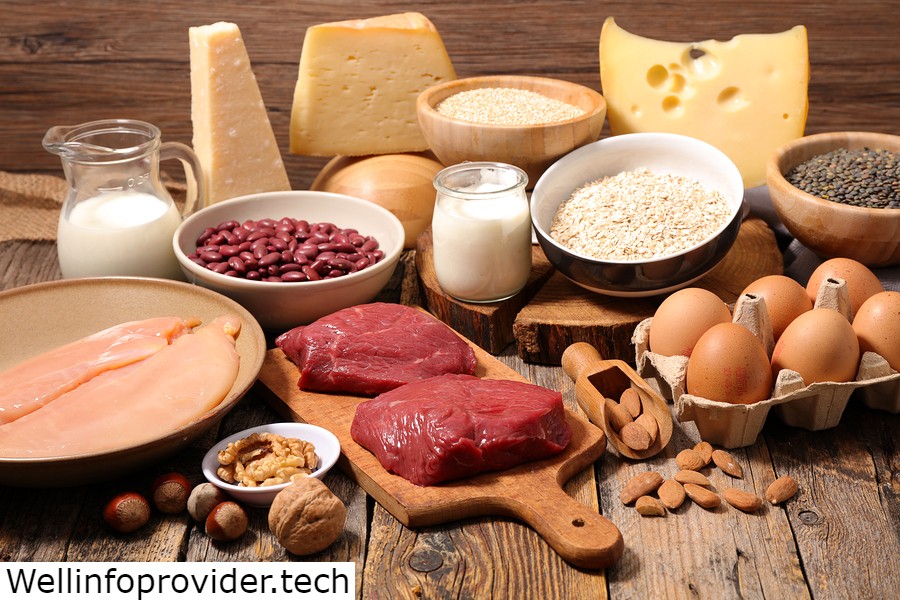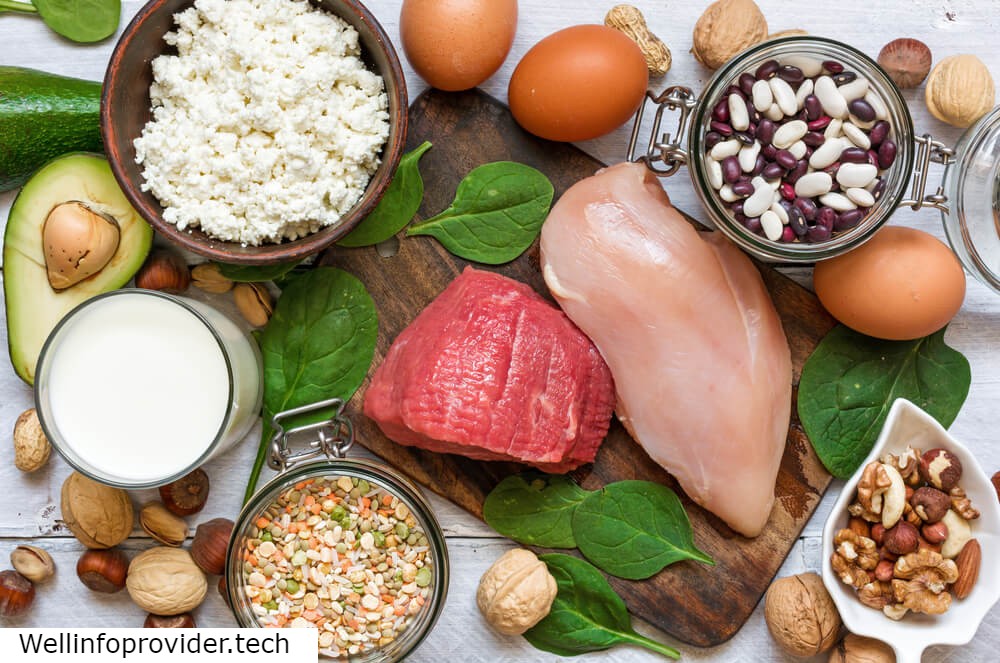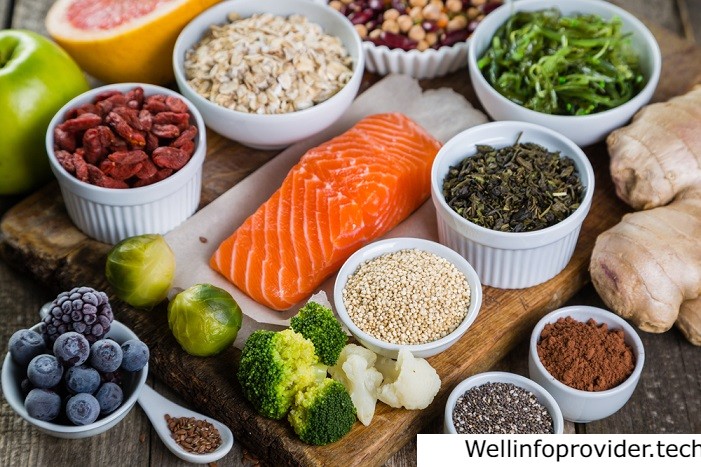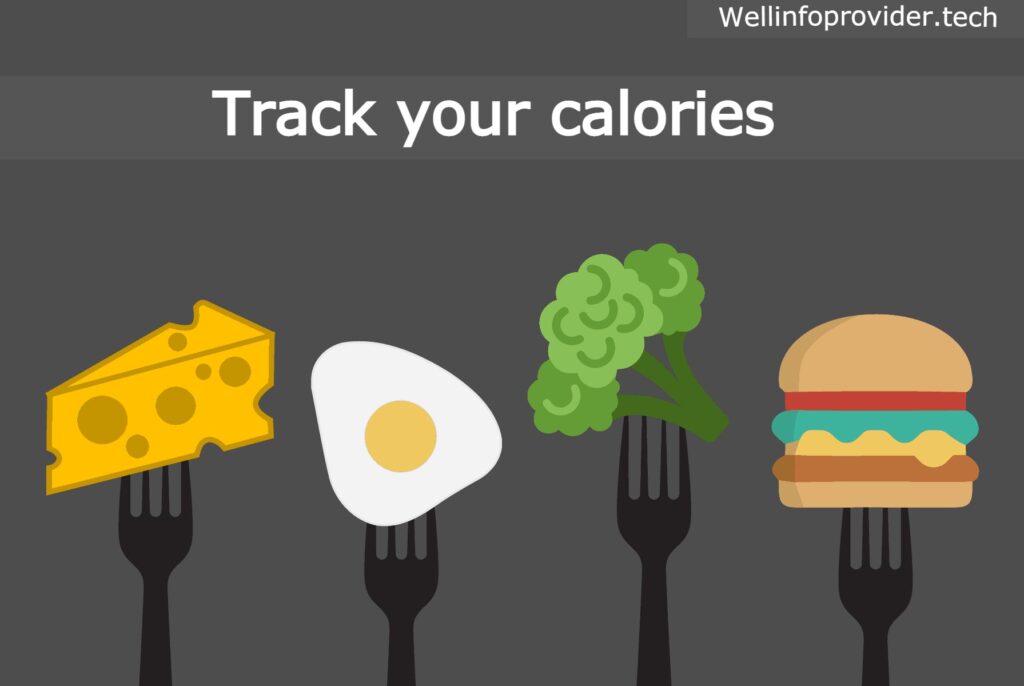Although thinness can often be beneficial to health, being underweight can be a problem if it results from a poor diet, if you are pregnant or have other health problems. Therefore, if you are underweight, see your doctor or nutritionist for an assessment. Together you can plan how to achieve your goal.

While thinness is highly valued in our culture, the prevalence of underweight people is a significant public health problem. There are several reasons why people lose weight, including genetics, a fast metabolism, and comorbidities such as thyroid problems or cancer.
Healthy Weight Gain Strategies: 18 Tips To Gain Body weight And Muscle
If you’re thinking about how to gain weight healthily and gain lean mass, it’s important that you consume more calories than you expend by participating in a proper exercise program. Increasing portions and eating high-calorie foods can be a good strategy for gaining weight. If you’re wondering what to eat to gain weight, here we have Tips To Gain Body weight And Muscle
1. Eat a high-calorie breakfast:

Try to include high-calorie foods such as muesli, nuts, seeds, nuts, Greek yoghurt, eggs, avocados, smoothies, or flavoured milk.
2. Eat Meals every 2-3 hours:

When you eat every two hours, you will burn more calories and prevent muscle loss.
3. Eat foods rich in protein:

Proteins: red meat, pork, chicken skin (do not deep fry or grill for your health), salmon or other oily fish, beans, whole milk, eggs, cheese, and full-fat yoghurt.
4. Include high-calorie foods in your diet:

For example –
- Milk + 1-2 tablespoons peanut or almond butter + frozen banana-berry juice
- Oatmeal + milk + dried fruits and nuts
- Salad + cheese, avocado, seeds/nuts and salad dressing
- Baked potato + cheese and broccoli
- Boiled vegetables + olive oil and chopped almonds
5. Eat carbs and fats:

While you need carbohydrates for energy, most people eat more than they need. So limit your carbohydrate intake only after your workout.
- Eat fruits and vegetables with all meals. They contain fewer carbohydrates than whole grains, except corn, carrots, and raisins.
- Other carbohydrates only after training. These are rice, pasta, bread, potatoes, quinoa, oats, etc. Avoid white carbohydrates and eat whole grains.
6. Increase High-energy-dense Foods:

Many people try to limit their intake of carbohydrates or fats in an attempt to lose weight. This can make it difficult to gain weight, as it will be challenging to get enough calories. If weight gain is a priority, eat plenty of carbs and high-fat foods. Eating plenty of proteins, fats and carbohydrates at every meal is best.
7. Exercise daily to build muscle:

This includes yoga, push-ups, weight-bearing exercises, and other activities that can help you to gain weight. They burn calories but also make you feel hungry, so eat more. Talk to your doctor about the best ways to exercise to gain weight, especially if you have health issues that are holding you back.
8. Stay away from fast food:

Too many “empty” calories from salt, sugar and unhealthy fats can be harmful, no matter your weight. Nutritious foods like fruits, dairy, meats, legumes, and some vegetables can help you healthily gain weight.
9. Choose only healthy food:

Not All vegetables and fruits are low in calories. Eat dense fruits like mangoes and avocados or starchy vegetables like potatoes and corn. And oily fish like salmon is a great way to add healthy protein to your diet.
10. Track your calories:

To make sure you’re reaching your target calories, write down the calories of everything you eat each day. Consistently hitting your calorie goals will lead to weight gain.
11. Good sleep:

Sleep is essential for muscle growth.
12. Don’t smoke:

Smokers usually suffer from weight loss. Quitting smoking can lead to weight gain.
13. Have a snack before bed:

Eat more meals or snacks when possible, such as before bed.
14. Take Creatine:

A Muscle Building Supplement Creatine Monohydrate can help you gain a few pounds of muscle mass.
15. Try Weight gainer:

If you’re trying, you can try a weight gainer. They are rich in proteins, carbohydrates and calories.
16. Drink milk:

Choose whole milk and drink at least a full glass daily.
17. Drink water:

It is important to avoid drinking water before meals. This fills the stomach and leaves no room for food. Instead, make it a habit to drink water regularly, but only after meals.
18. Avoid sugary drinks:

Sugary drinks such as sodas, juices, sweet teas, and sports drinks add extra calories with little or no nutritional value. People who regularly drink sugary beverages are more likely to be overweight. Most often, choose water or low-fat milk.
Why is weight gain important?
While about 39 per cent of adults worldwide are overweight or obese, many more people struggle with being underweight. Some people may be naturally skinny due to genes or a fast metabolism. However, being underweight can also signify poor nutrition or underlying health conditions.
In addition, many people who are not medically underweight still want to build muscle and gain weight for other reasons. Whether you’re medically underweight or trying to gain muscle mass, the basic principles are the same.
What is the definition of “underweight”?
Underweight is defined as a body mass index of less than 18.5. This is estimated to be less than the body weight needed to maintain optimal health. You can use the calculator to find out where you are on the BMI scale. However, keep in mind that there are many issues with the BMI scale that are only related to weight and height. This does not take into account muscle mass.
Some people are naturally skinny but still healthy. Just because you’re underweight on this scale doesn’t mean you have a health problem. According to the Centers for Disease Control and Prevention (CDC), being underweight is more common in women than men.
Health risks of being underweight?
Being underweight can be harmful to your health. One study found that medically underweight people are twice as likely to die as those who are obese, suggesting that being underweight can worsen your health. Another study found that self-reported health scores drop significantly in skinny people after age 38, indicating a lower BMI later in life, which may be associated with health risks.
Being underweight can impair immune function, increase the risk of osteoporosis and fractures, and cause reproductive problems. Moreover, skinny people are more likely to develop sarcopenia (age-related muscle atrophy) and may be more likely to develop dementia. In children, it can also cause problems with growth and development.
Causes of being underweight
Several medical conditions can lead to unhealthy weight loss, including:
Thyroid problems: Having an overactive thyroid (hyperthyroidism) can increase your metabolism and reduce unhealthy weight.
Diabetes: Uncontrolled diabetes can lead to severe weight loss
Celiac disease: The most severe form of gluten intolerance. In general, the incidence of celiac disease has increased during the 20th and 21st centuries.
Eating disorders: These include anorexia nervosa, a severe mental health disorder.
Infections: Certain infections can cause someone to become severely underweight. This can include parasites, tuberculosis, and HIV infection.
Cancer: Cancer can cause excessive catabolism in the body, which increases energy expenditure. This can cause a person to lose a lot of weight, but its severity and weight loss can depend on the type of cancer and the person’s age.
If you are underweight, you may want to see a doctor to rule out a serious illness. This is especially important if you have recently begun to lose significant weight without any effort.
